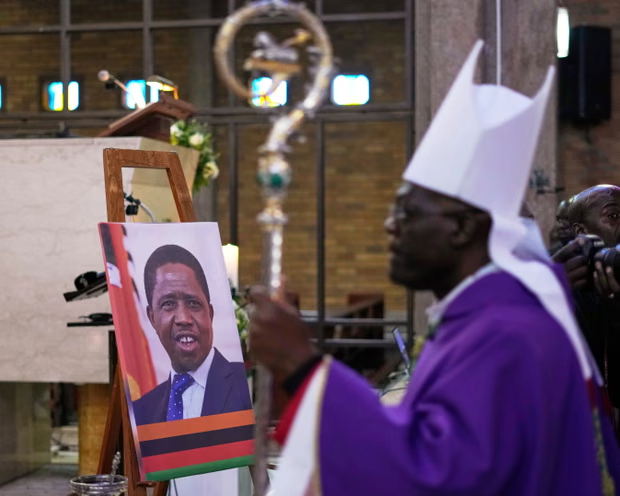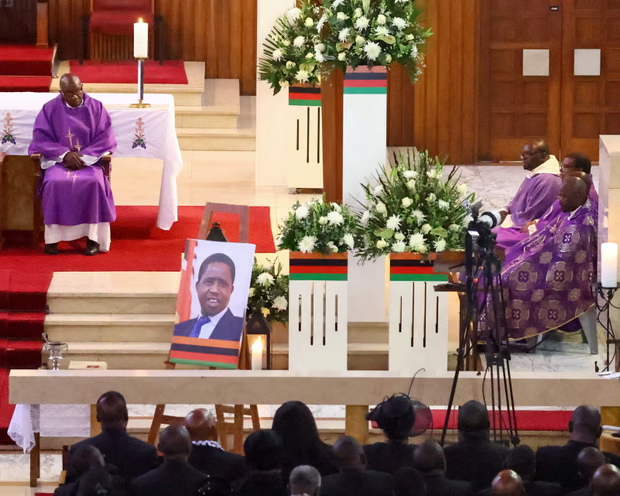A heated dispute has erupted over whether Zambian President Hakainde Hichilema will attend the funeral of his predecessor, Edgar Lungu, as Lungu’s family battles in South African courts to block the repatriation of his body. The legal tussle reflects a longstanding rivalry between the two leaders, which persisted beyond Lungu’s death in June at age 68 while receiving treatment in South Africa for an undisclosed illness.
The funeral in Johannesburg was initially halted after Zambia’s attorney general, Mulilo Kabesha, intervened at the last minute. Lungu’s family claimed that the late president had expressly wished for Hichilema to stay away. On 8 August, the Pretoria High Court ruled in favor of repatriation for a state funeral in Zambia, prompting an emotional courtroom scene as Lungu’s sister, Bertha, shouted at Kabesha before being restrained. Lungu’s family has since sought to appeal the decision, and proceedings are paused pending the South African Constitutional Court’s review.

The situation has also fueled conspiracy theories and widespread online speculation, ranging from claims that Lungu is still alive to allegations that Hichilema intends to use the body for witchcraft. Many Zambians have responded with humor, sharing memes comparing the saga to the dramatic announcement of a new pope.
Patriotic Front spokesperson Emmanuel Mwamba criticized government officials’ handling of the situation in South Africa, describing it as “mechanical” and lacking empathy and cultural sensitivity. Kabesha countered that a state funeral, including military honors, is a legal requirement under Zambian law, citing precedents set for Kenneth Kaunda, the country’s first president. Mwamba argued that Hichilema’s presence was unnecessary for a formal state funeral, which primarily involves protocol, military ceremonies, and gun salutes.
Political analysts say the burial dispute has intensified Zambia’s regional and partisan divisions. Sishuwa Sishuwa, a historian at Stellenbosch University, noted that the conflict may influence the 2026 elections, suggesting the government’s legal actions aim to minimize political fallout from burying Lungu abroad.
Lungu, who served as Zambia’s president from 2015 to 2021, defeated Hichilema in 2016 amid allegations of election rigging. The rivalry escalated in 2017 when Hichilema was arrested on treason charges following an incident with Lungu’s motorcade; international pressure led to his release four months later. Hichilema eventually won the presidency in 2021 during an economic crisis, though critics accuse him of employing similarly heavy-handed tactics. Lungu himself faced restrictions in later years, including bans on outdoor exercise labeled as political activism, while his family has faced politically charged corruption investigations. In 2024, the constitutional court barred him from contesting the next election, ruling his 2015–2016 term counted as a full first term.



